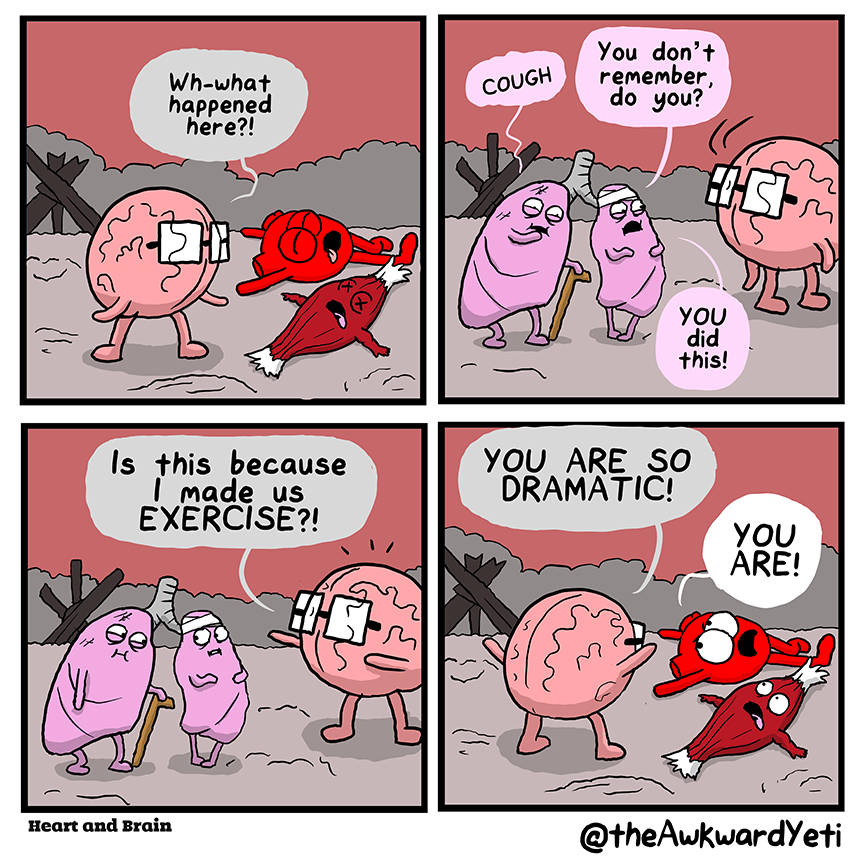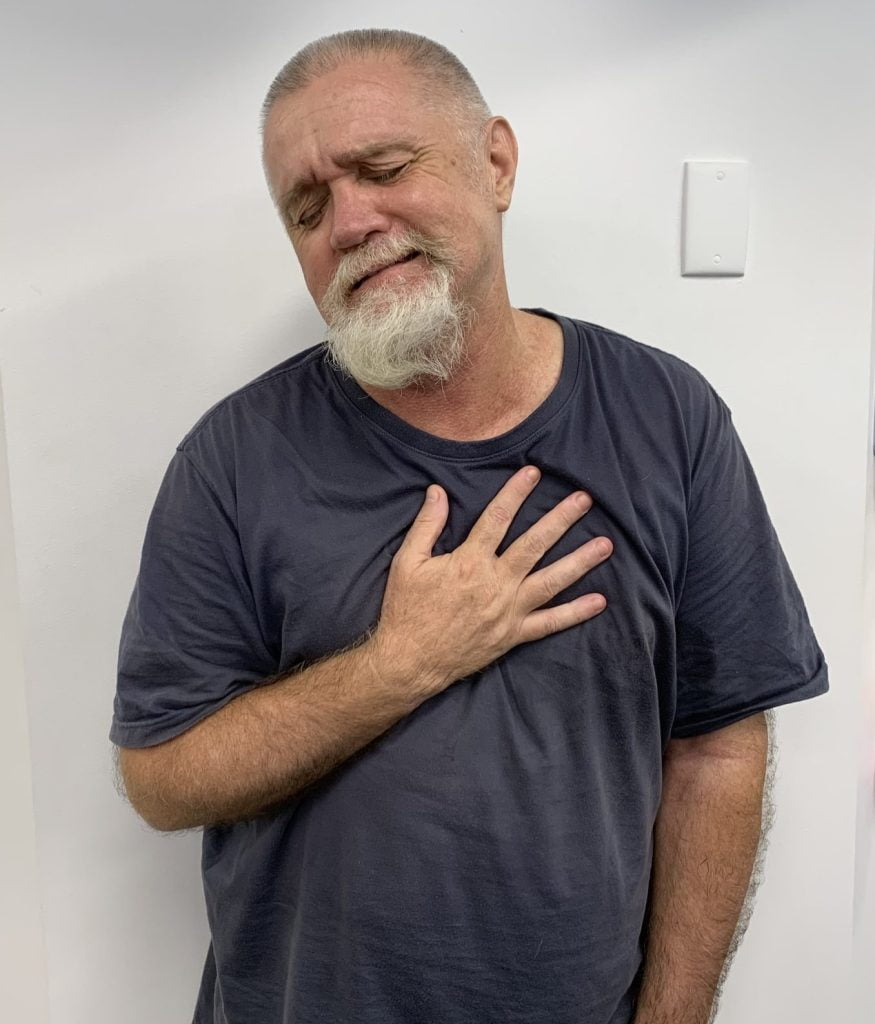What’s so serious about CVD?
According to the World Health Organisation, the top three leading causes of death globally are cardiovascular diseases. While this is a scary statistic, the silver lining is that a lot of risk factors that lead to CVD are modifiable. While there are also non-modifiable risk factors such as age, gender, ethnicity and family history, there are many modifiable risk factors that you can act on to reduce your chances of getting CVD! Let's talk more about this...to lighten the heartache (pun intended), we've added a couple little jokes. Enjoy!
What is It?
Cardiovascular disease or CVD for short, is an umbrella term for conditions that affect the heart and blood vessels. Common types of Cardiovascular Disease you may have heard of are Coronary Artery Disease, Peripheral Artery Disease and cardiac events such as heart failure, cardiac arrest and heart attack. Here is a breakdown of what each of them are:
- Coronary Artery Disease (CAD): the narrowing of the arteries that bring blood to heart muscles. It is the most common CVD and because of this, people sometimes refer to CAD and CVD as the same thing. Depending on where you are in the world, Coronary Artery Disease can also be known as Ischemic Heart Disease (IHD).
- Peripheral Artery Disease (PAD): similar to CAD however the narrowing and/or blockage happens to the blood vessels that bring blood to your arms and legs.
- Heart Failure: when the heart can’t pump blood to meet the body’s needs. This can be caused by different conditions you might already have such as PAD and high blood pressure (hypertension).
- Cardiac Arrest: when the heart suddenly stops beating which is usually because of an electrical disturbance in the heart.
- Heart Attack: happens when part of the heart gets damaged or dies because there is a blockage that causes an area of the heart to not have blood supply.
So what can I do?
Going to your GP is always a good place to start however other Allied Health Practitioners are trained in identifying risk factors and providing professional guidance on lifestyle modifications. If you have a diagnosis of diabetes, hypertension (high blood pressure), hypercholesterolaemia (high cholesterol), obesity or have a family history of CVD, it is exceptionally important to start taking action as soon as possible.
Ew, Cardio.
When you think Cardio, you might think sweaty, struggling to breathe, turning red and almost dying on the floor...gross (for me personally anyway). Spoiler: you don't have to exercise like that to get healthier! Your heart, just like the muscles in your arms and legs, gets stronger with exercise. Think of it like lifting weights; the more you do it, the easier it is to carry heavy things. When your heart is strong, it pumps blood around your body more easily, delivering all the good stuff your body needs to function properly.
Exercise is a key player in reducing the risk of cardiovascular disease (CVD) because it strengthens your heart, improves blood flow, and keeps your arteries clear. When you work out, your heart gets a workout too, becoming better at its job. Exercise also helps control weight, lower blood pressure, and reduce bad cholesterol, all of which are crucial for a healthy heart.
Reading that exercise is good is easy but starting it and knowing what to do can be the hard part. Don’t worry we get it! With the internet so full of information and with work and family responsibilities, it’s overwhelming to know where and how to start. While it is possible to start all by yourself (though not always the safest option, especially if you already have a health condition and take different medications), a health professional can take the stress and time out of your hands. We understand knowing who to see and what they do can be hard so let us make it easier for you!

Who Can I See to Help?
Below are key allied health professionals you may get recommended to see by your GP. To understand how each can help, let’s find out more about how health professionals help:
Care Plan Nurses: These are Nurses who develop and coordinate individualised care for people with complex health needs. They look at individuals as a whole to assist them in setting realistic goals. Care Plan Nurses monitor your progress and outcomes over time and make recommendations on how to improve your progress.
Exercise Physiologists (EP): Are experts in exercise prescription and rehabilitation especially in a clinical setting where there is more risk involved. EP’s can develop a safe and effective exercise program that is, based on scientific evidence, tailored to your specific needs, capacity and medical conditions. Exercise Physiologists can also conduct physical assessments, monitor symptoms and provide health education to improve and track your cardiovascular health.
Dietitians: Are experts in constructing nutritional plans for clinical conditions; Clinical conditions, like CVD. Dietitians provide dietary guidance and nutritional counselling that are individualised and backed by scientific evidence. With all the fad diets going around, dietitians are especially important in providing reliable information on what healthy food habits are and what foods and diets are best for you.

It's important to remember that it's not just about hitting the gym; eating nutritious foods like fruits, vegetables, and whole grains is essential. Avoiding smoking, moderating alcohol intake, and managing stress are also important things to consider. When you combine exercise with a healthy lifestyle, you're giving your heart and blood vessels the best chance at staying strong and warding off CVD.

Building up the effort and starting can be the tricky part. If you have more questions or want a kick start to managing your health, book an appointment with our Exercise Physiologists below!


